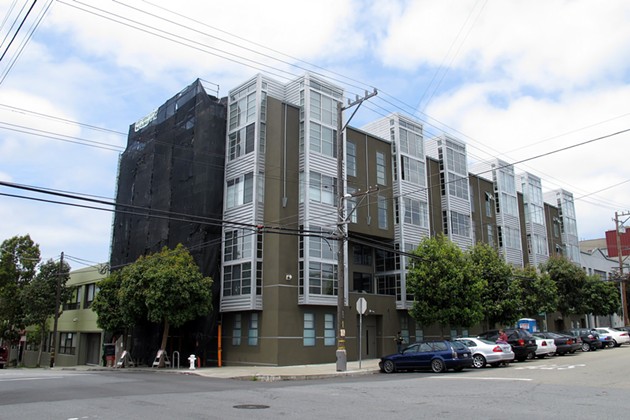click to enlarge

The federal government has been so successful this year rooting out the evil behind all-cash real estate purchases in New York City and Miami that it’s bringing the operation to another high-value yuppie paradise: California.
San Francisco, San Mateo, and Santa Clara counties join L.A. and San Diego as new targets of the Financial Crimes Enforcement Network, an arm of the U.S. Treasury Department. This might sound like something for the MBA elites at Stanford, but it’s actually quite easy for laymen to understand. You see, properties of all sorts are mega-valuable out here in the Golden State. So anything over $2 million bought using a “shell company” - a corporation that has no other function than to facilitate business transactions - will be scrutinized by the government.
Will this suddenly make San Francisco affordable? Answer: a resounding no. Will it be interesting to know how many shady dealings are going down all around you? Answer: a resounding yes.
The
New York Times -
which is taking partial credit for inspiring the Treasury to create this program - reported last week some of the suspicious activity uncovered in NYC and Miami just since March, when the monitoring began. In one instance, someone withdrew $16 million in cash for a purchase. Another buyer was tied to check counterfeiting, and some $7 million moved around in different shell companies was linked to South America,
according to the Times.
Sadly, the details are scant beyond that, leaving us to wonder about the various people behind these shell companies. However,
in a July story, the
Times reported on a shell company with ties to Malaysia’s embattled prime minister, Najib Razak.
If you follow the Bay Area real estate market, you’ve seen the headlines about cooling this and cooling that. And although things seem to be trending down, the median home value in San Francisco remains above $1 million. Bloomberg, for instance,
reported in June that San Francisco’s stock of luxury property - condos and houses valued at $2 million or more - was increasing fast compared to the year prior. But there are still office buildings and other commercial properties out there to be purchased in a less than legal way.
Some still feel the program is more show than substance.
The Real Deal, a New York real estate news source,
spoke with experts in the field who said the rules lacked impact and were more of a bother to comply with than a solution to a big problem.

